Under the leading of UNICEF, schools at the camp participated in a program to examine the effect of EM Technology on odor suppression at the toilets. The result was clear; the odor has gone or reduced significantly. Moreover, flies around toilets disappeared. Furthermore, school children were educated and became conscious about hygiene.
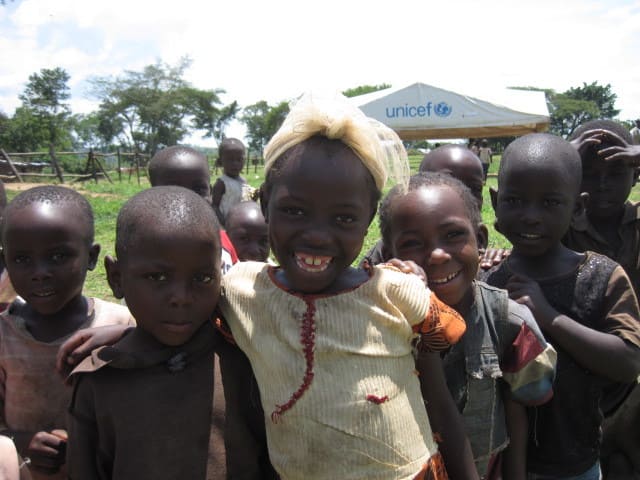
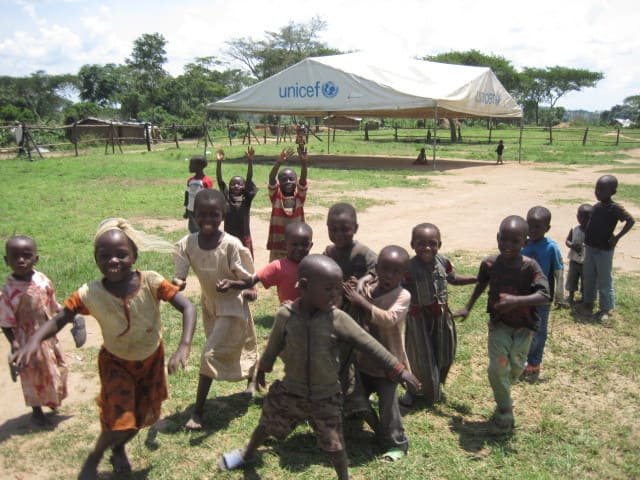
As UNICEF was working to provide better sanitary condition to a refugee camp in Uganda, their first priority was to get rid of the bad odor in toilets. In many of the residential areas and school buildings, pit latrines are common.
In order to solve this problem, a total of 53 schools, including 13 schools as control, were selected at random for the experiment. EM application was undertaken in 40 primary schools from 2nd to 9th July 2012, while non-chlorinated water was applied in the 13 control schools.
Two weeks since starting EM application, all schools gave feedback that stench in the latrines was reduced where EM technology was applied. In all the 13 control schools, where EM was not applied, there was no difference in stench during the period.
Comments from participating students and teachers were full of excitement:
“The smell is gone. One can now eat a potato in the latrine” – a student, Kitanga Primary school.
“I don’t need to remove my sweater anymore.
Where did this miracle solution come from?” –a student, Kiyora Primary school.
“Really, there is great improvement. Smell completely out. Latrine floor dry faster after cleaning. No flies. Sludge going down. Only water seen in latrine” –a teacher, Mwisi Primary School
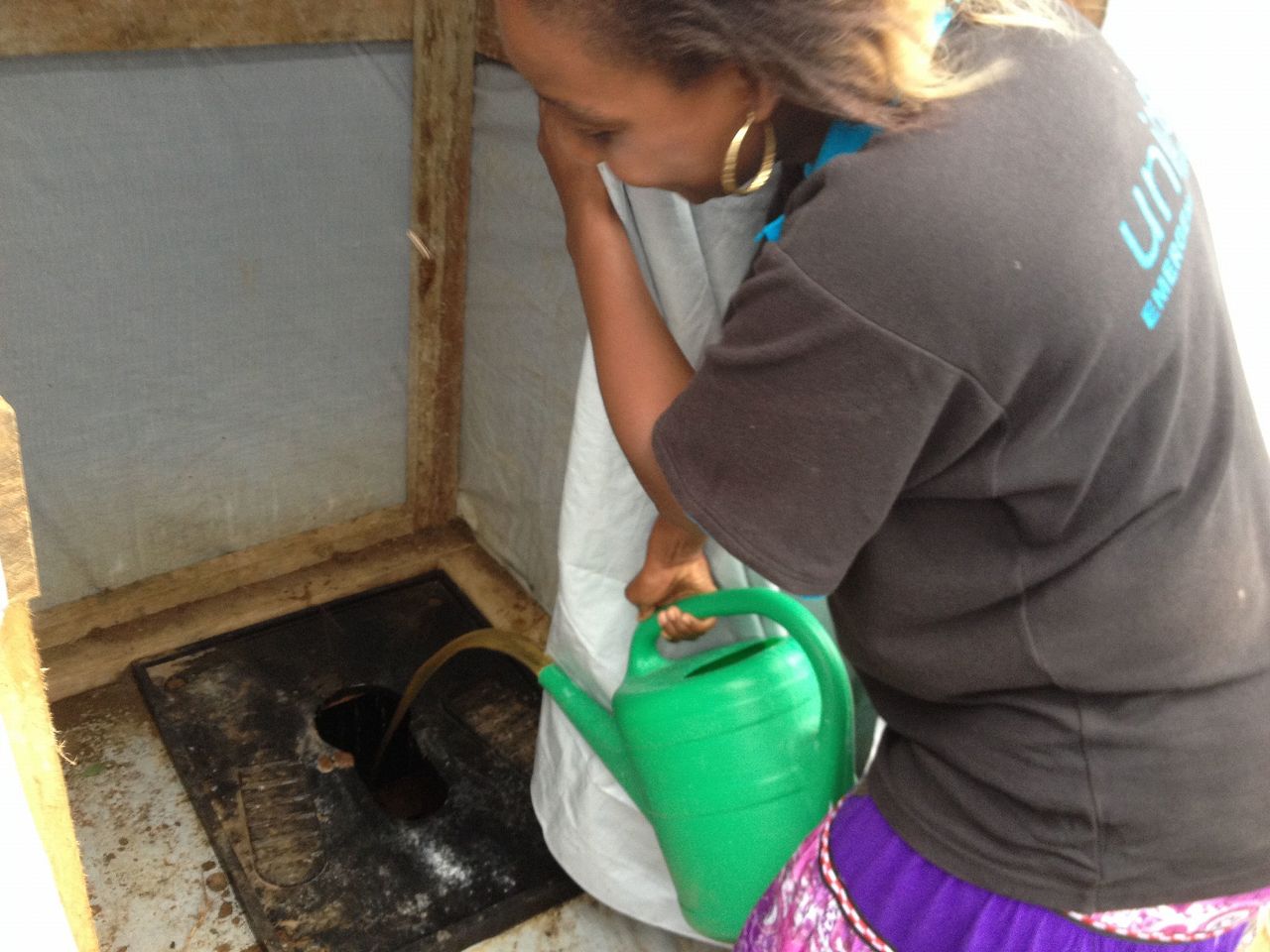
In addition to amazing effect on odor, more benefits were reported. According to the case study report by UNICEF Eastern & Southern Africa Region Office (ESARO) in January 2013,
“-Cleaning the latrine daily/regularly
Each of the participating schools was given an extra 10L of EM for use as a cleaning “detergent” with water. All schools reported cleaning the latrines daily and as a result, latrines are dry and have minimal flies while maggots have been reported to disappear.
-No need to remove sweaters and blouses
The impact of this is that children no longer need to remove sweaters and blouses before entering the latrine (as was the case before).
-Reduction in fly population
The regular cleaning of the latrine floors and the correct “positioning” of excreta directly into the pit has contributed to the reduction of flies that used to hover in latrines. This in turn has made the latrines relatively more comfortable to use. Similarly, other crawling insects, such as maggots and cockroaches were not seen at the time of the monitoring visit. These crawling insects passively carry human excreta to food or food utensils posing serious health risks.”
They also educated the teachers and students about public hygiene, and they acquired the habit of washing hands after going to toilet and before meals etc.
Furthermore, many refugees have evacuated from surrounding countries and live in Uganda. In Bundibugyo District, many Congolese stay in refugee camps. Organizations including United Nations are working to provide them with places to live. UNICEF Uganda also started using EM for these refugee camps to improve the hygienic condition. They are happy with the results. The stench was reduced drastically in toilets as well as the disposal sites. There are still more than 15,000 refugees in Uganda.
For futher information, please contact our partner in Kenya at:
Effective Microorganisms Technologies Limited
P.O. Box 1365 – 60100 Embu, Kenya
Tel: +254-719-807-149
Fax: +254-68-41074
Email: emtechkenya@gmail.com
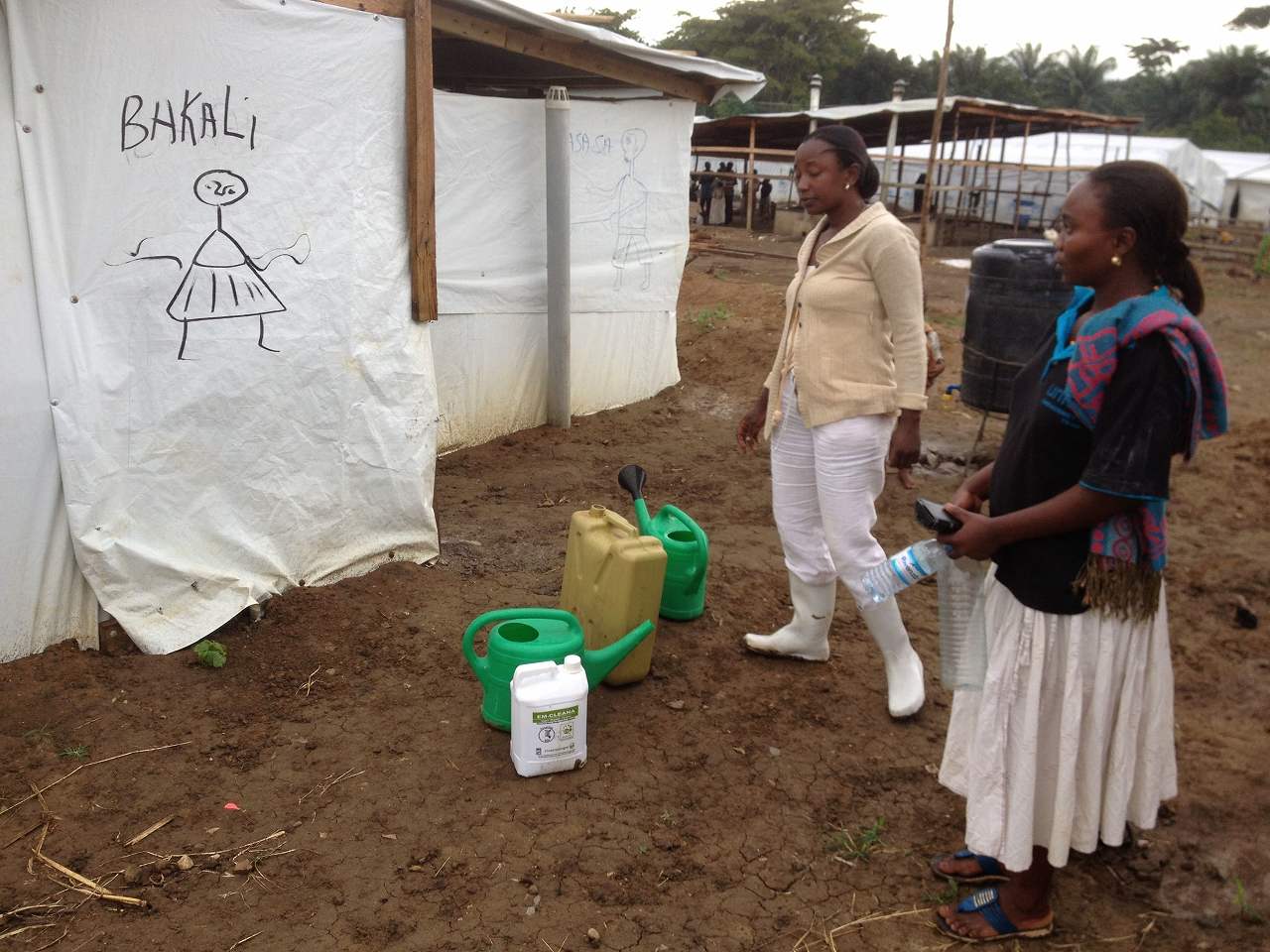
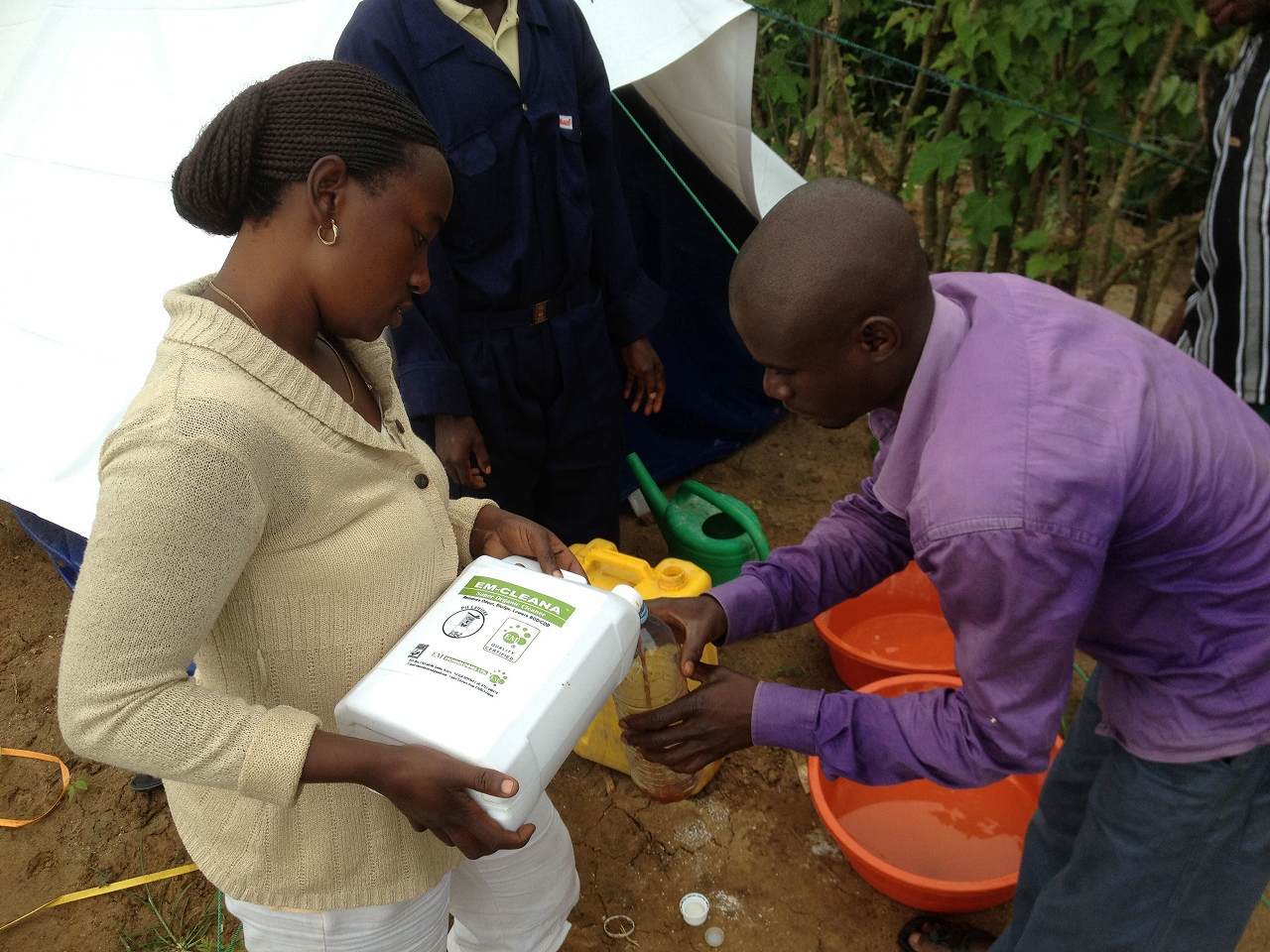
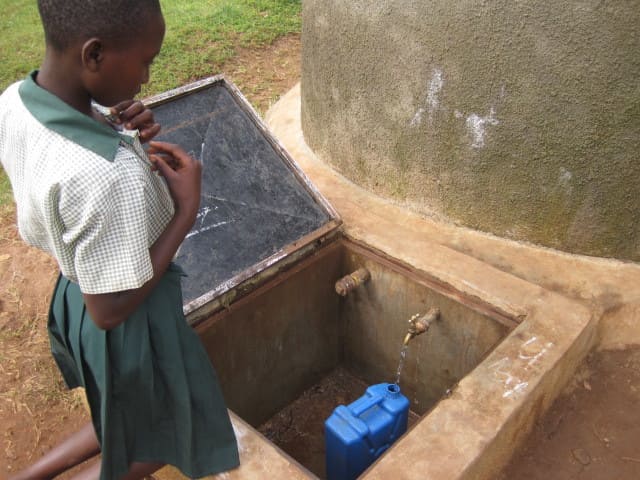
2016.8.5 Updated